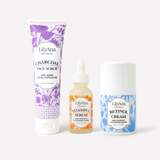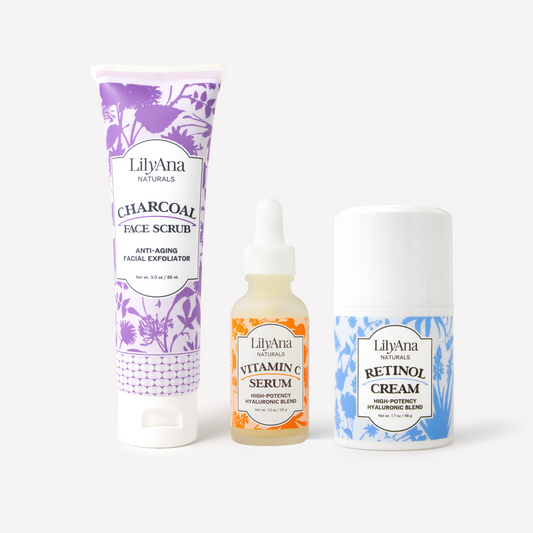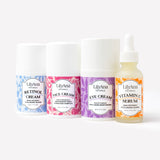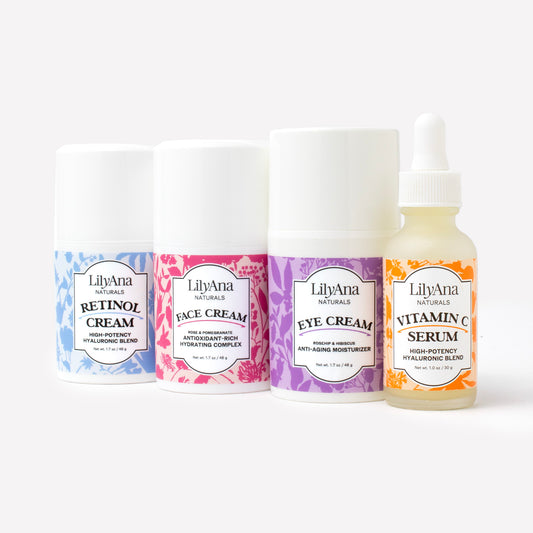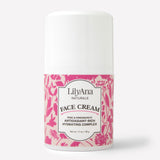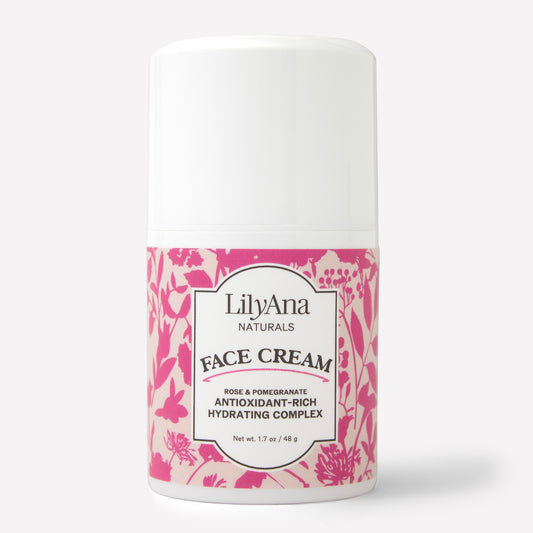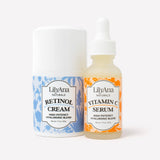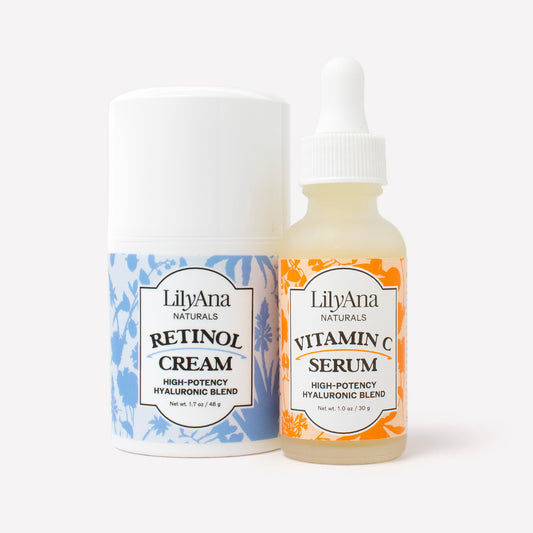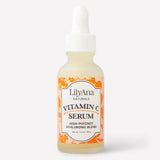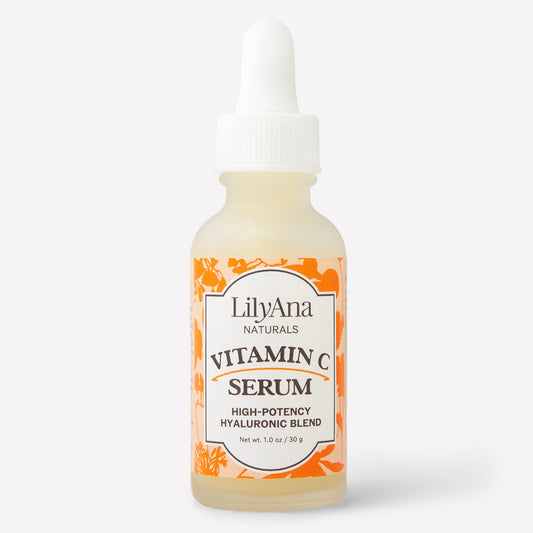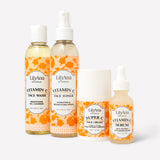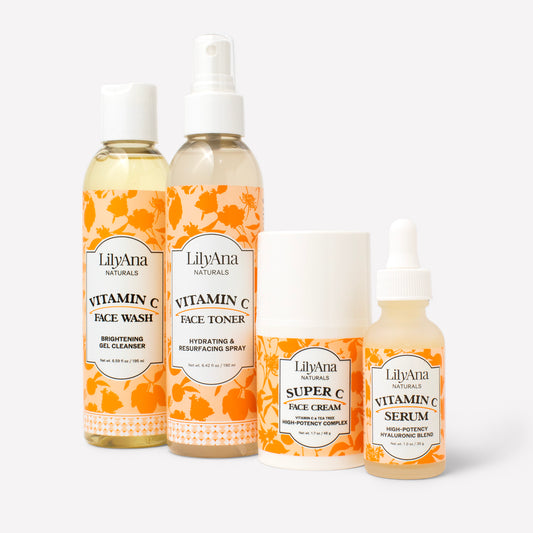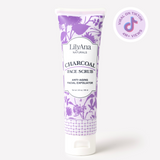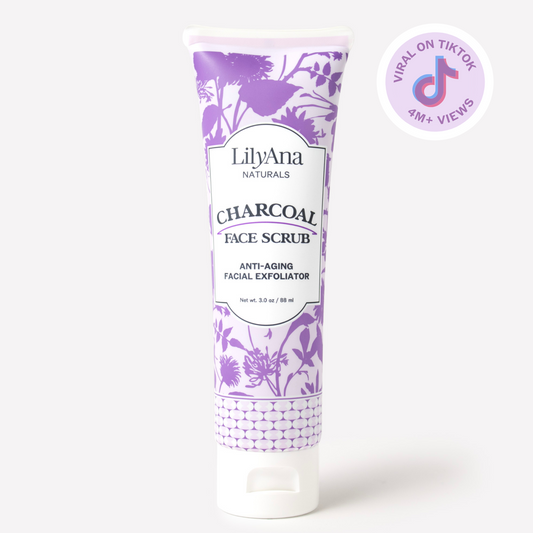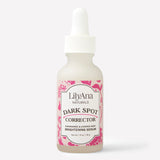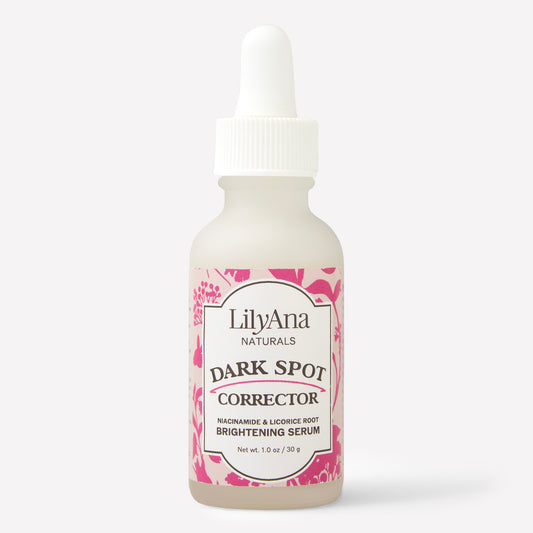Most skincare enthusiasts have heard of retinol, but few understand what it does. Retinol, as mentioned in a previous article, is one of several members of the retinoid family.
Retinoids (vitamin A-derived chemicals) occur in several forms. However, there is almost certainly an ideal retinoid out there for you. Read on to learn more about the advantages of retinol.
What Exactly Is Retinol?
Retinol is a Vitamin A synthetic derivative, although it belongs to a broader class of retinoids. When administered topically, this substance converts to retinoic acid through specific enzymes present in the skin. While retinoic acid may be administered topically, it is more severe than retinol creams or serums since it does not convert spontaneously over time.

Retinol was initially authorized for treatment in acne sufferers in the 1970s. It aids in the promotion of cell turnover and the prevention of pore blockage. This implementation will assist in protecting against blemishes and enhance the penetration of your skincare products. Furthermore, it will help to boost your entire skincare regimen and optimize outcomes.
Retinol may be found in a variety of over-the-counter cosmetic and skincare products. You may also see a cosmetic professional who could prescribe retinol to you. Retinol can help your skin appear and feel softer, smoother, and more vibrant. In addition, it will aid in the reduction of fine lines and wrinkles while also increasing collagen synthesis.
Retinol is accessible in a wide range of strengths. I suggest beginning with a 0.25 to 0.5 strength and using it twice a week. If your skin is not affected, you may increase your use to four nights per week. Use a retinol product rather than a Retin-A product, which is considerably stronger than retinol.
What Exactly is Retinoid?
The word "retinoid" refers to both over-the-counter retinol and prescription-strength retinoic acid. Retinoids are available over the counter in three forms: Retinyl palmitate, Retinaldehyde, and retinol. Tretinoin (Retin-A) and Tazarotene are examples of prescription-strength retinoids. Tazarotene is the most potent retinoid.
Retinol's Top 5 Advantages
There are many advantages of using retinol, but there are five significant reasons people purchase and utilize it. We will go through those arguments in more detail below.
1. Retinol Can Help You Get Rid of Acne
Do you have acne that is resistant to treatment? Then, retinol may be just what you would want for your skin. Retinol clears skin and prevents future breakouts by unclogging pores. So naturally, less acne means fewer acne scars. Furthermore, retinoids may enhance the effects of other medicated creams and gels, enabling you to get the most out of whatever treatments you're utilizing.
2. Retinol Can Fight Aging Signs
You may relax knowing that retinol is one of the most widely utilized and researched anti-aging substances on the market. Tretinoin was first promoted as an anti-acne therapy in the 1970s, but it soon proved to have significant anti-aging benefits.
3. Retinol Can Assist in Skin Tone Evening
One of the many unique properties of retinol is that it promotes skin cell turnover, resulting in an "exfoliating" effect. Dull and dry skin gives way to fresh, brighter, and more even-toned skin with enhanced collagen and elastin levels. The thicker skin is firmer and smoother, with fewer flaws overall. As a result, even "problem-free" skin may benefit from retinol radiating properties.
4. Retinol Is a Low-Cost Treatment
Depending on your financial situation, retinol may seem to be an unnecessary expense. However, investing in less expensive, short-term remedies may turn out to be the more expensive choice in the end.
Retinol is one of the few substances with scientifically established advantages, making it an excellent long-term investment. A starting option is available at The Skin Spot for $55—a modest amount to pay for assured, proven results!
5. Available as a Prescription or Over-the-Counter Medication
Most individuals should be able to get started with an over-the-counter retinoid. The lesser dose enables the skin to adapt to the treatment while reducing the risk of irritation. Lower retinol dosages also offer fewer adverse effects than prescription-strength retinoic acid.
However, the trade-off is that noticeable effects may take longer to appear. Consult your dermatologist or plastic surgeon if you are unsure about your recommended dose.
Complete List of Advantages:
- Acne treatment
- Clear pores
- Increase cellular turnover.
- Increased collagen encourages suppleness.
- Reduce hyperpigmentation
- Radiant skin
- Reduce and prevent fine lines and wrinkles.
- Improved skin texture and tone
Select the Best Product for You
One size does not fit all when it comes to skincare. You don't need to be concerned if you're feeling overwhelmed by the number of retinol creams on the market. We're here to assist you.
If you want minimal irritation, try LilyAna Naturals' Retinol Serum as it's ideal for sensitive, mature, and oily skin types. This serum features a unique time-release composition as well as an antioxidant-and-botanical mix that allows you to enjoy the full benefits of retinol while reducing the risk of irritation. In addition, the skin is brightened, smoothed, and moisturized. Learn more about LilyAna Naturals skincare to find the best skincare regimen for you.
Why Should You Use Retinol?
One of the most popular kinds of retinoids is retinol, which is accessible over-the-counter and is less prone to irritate "beginners." After all, there is such a thing as having too much of a good thing.
If you use too much retinol, you may get red, irritated, and peeling skin. However, when used with care, retinol has the potential to be one of the most effective preventive and proactive treatments for your skin—regardless of your age.
Is Retinol Harmful?
Many individuals are afraid of retinol since it has long been linked with dry, peeling skin. However, retinol is a well-studied substance with proven medical credibility. As far as we know, retinol has no long-term negative consequences.
While specific side effects may be considered unpleasant by some (having symptoms "get worse before they get better" is pretty unusual), they are usually readily controlled with appropriate planning.
What Retinoids Are the Most Effective for Anti-Aging?
It's never too early to start taking retinol for anti-aging. However, various kinds of retinoids help different types of skin. For example, mature skin may need prescription-strength treatments such as tretinoin and retinoic acid. These are up to 100 times stronger than over-the-counter retinol creams.
Those looking for preventive treatment, on the other hand, may choose to start with milder, medical-grade retinol and work their way up. These retinoids have a lower dosage or are encapsulated for a delayed-release. But, again, it is best to go slowly with people who have youthful skin.
What Exactly Is Vitamin A?
Vitamin A is a necessary nutrient that is divided into two types: retinoids and carotenoids. Both kinds are converted into retinol by the body, which is stored in the liver or transported throughout the body. Retinol, when applied topically, can increase skin cell turnover and stimulate collagen production.
What Are the Retinol Side Effects?
It is a widespread misunderstanding that retinol causes skin thinness. But don't worry, this isn't true. Because retinol promotes collagen synthesis, it will thicken and strengthen your skin once you include it in your regimen. In general, peeling and flaking are more severe when you first start taking retinol and gradually diminish.
Similarly, since your skin must adjust to retinol, acne may worsen before it improves. Skin dryness is another frequent adverse effect. However, with a consistent moisturizing regimen, you may be able to control this discomfort and others.
Is it Possible to be Too Young to Use Retinol?
It is usually preferable to avoid issues rather than attempt to fix them. There are no documented side effects of retinol use in children or adolescents. However, acne frequently lowers a person's self-esteem in their adolescence. A proper skincare regimen may help avoid this, making greater confidence another unnoticed benefit of retinol.
What Kind of Retinoid Should I Take?
Aside from retinol, there are many different kinds of retinoids on the market. Those with susceptible skin should start with retinoid esters (e.g., retinyl palmitate) and work their way up. Adapalene is an over-the-counter medication that helps to reduce excessive development and desensitize the skin to irritation, making it ideal for acne sufferers.
When Will Retinol Be Effective?
The length of time it takes to see results is determined by several variables, including but not limited to your skin type, the dose of the product, and the amount of product utilized. In general, you should start seeing retinol effects after approximately 12 weeks of regular usage.
Do not make the mistake of assuming that more is better since this may lead to catastrophic consequences. When taking retinoids, your best chance is to build up a tolerance. Begin slowly and gradually increase your speed. To observe benefits, you do not have to take prescription-strength retinoids.
On the contrary, taking an overly potent retinoid may result in even more bothersome (and needless) adverse effects. Keep in mind that slow and steady wins the race!
How Do I Know I'm Getting High-Quality Retinol?
Unsurprisingly, some individuals take advantage of the retinol craze by selling counterfeit goods on Amazon or eBay. Unfortunately, if something seems to be too good to be true, it most often is. Selecting reliable and approved vendors like LilyAna Naturals is the best way to ensure you receive high-quality, genuine goods. Don't put your skin's health at risk for a good bargain.
How Does Retinol Make You Look Younger?
Retinol, being a member of the retinoid family, neutralizes free radicals that may be causing collagen degradation in the skin. As you become older, your body naturally produces less collagen.
Retinol may help you maintain your collagen reserves, promote new collagen synthesis, and strengthen the skin layer where wrinkles develop. As a result, existing wrinkles and fine lines may seem "smoothed over." New collagen synthesis will also prevent the formation of new wrinkles.
Can I Apply Retinol to My Eyes?
Many people believe that you should not use retinol on the eyes because they are too sensitive. In reality, this region of skin may benefit the most from its anti-aging and soothing properties. However, it is essential to remember that you should only use retinol around your eyes if you are confident that the product is mild enough for your face

In addition, if you feel that applying retinol to the eye region is too drying, you may want to follow up with a thick moisturizer. Those with dry skin may benefit more from an eye cream, while those with oily skin may benefit more from a gel. LilyAna Naturals' Retinol Eye Cream is our favorite retinol-containing eye moisturizer.
How Does Retinol React to Sunlight?
Retinol has long been recognized to enhance photosensitivity in the skin. Many individuals are aware that retinol makes skin more sensitive to sunlight (and thus, more vulnerable to burns). Because retinoids degrade in the sun, it's best to buy products in opaque containers and restrict your retinol use to the evening. Even if it's not sunny outside, remember to put on sunscreen; UV exposure is one of the leading causes of skin aging (skin cancer).
Is Retinol Right for My Skin Type?
While everyone with any skin type may benefit from retinol, some people may wish to take additional precautions to ease themselves into the optimization process. Those with fair, sensitive, sun-damaged, or over-exfoliated skin, in particular, should exercise extreme caution when adding any active ingredients into their regimen.
Furthermore, pregnant or nursing women should avoid any vitamin A-derived products, which includes avoiding any retinol-containing products, including sunscreen. Otherwise, you risk having a child with birth problems.
Is Retinol No Longer Effective?
The significant benefits of retinol tend to plateau after the first six months for many individuals. You may erroneously think that this implies that retinol is no longer effective, which, thankfully, is not the case. If anything, it's proof that your skin has been reacting well!
To maintain the most significant outcomes, switch to a higher strength solution. After that, you should be able to enjoy the advantages of retinol for at least a year.
Don't Be Afraid to Use Retinol's Powers.
There's a high possibility that retinol is part of your daily regimen regardless of your life stage. Retinol is an excellent option if you wish to cure acne, reverse signs of age, or have a more radiant glow. However, retinol is more than simply a marketing ploy. Those in their late twenties or early thirties may benefit the most from taking retinol as a preventive anti-aging therapy.
How to Apply Retinol to Acne
Before incorporating retinol into your regimen, check with a dermatologist or cosmetic surgeon if you are already using any other topical anti-acne treatments. Otherwise, your skin may become overwhelmed—and irritated. It would help if you introduced retinol gradually into your daily routine. Any active substance, including retinol, takes time for your skin to adjust.
Therefore, the excessive application may complicate the optimization procedure. Begin by just using it every other night. If you have sensitive skin, you may wish to wash the cream off after an hour or two. A good rule of thumb is that the less you apply, the more irritated your skin will be. If your skin reacts favorably, you may begin using retinol once each night.
Reduce the possibility of inflammation. In addition to simplifying the optimization process, you may take additional precautions to reduce the likelihood of irritation. First, because dry skin does not hurt, wait at least 30 minutes after washing your face before applying retinol. Then, use just as much as you need, apply a little quantity to all affected regions, and spread it as far as possible.
Wrapping Up
Have you seen any additional advantages to using retinol since including it into your routine? Tell us in the comments. Remember that sharing is caring, so share this information with your friends! Visit our blog to find out more about All Retinol Products for lovely, flawless skin!
